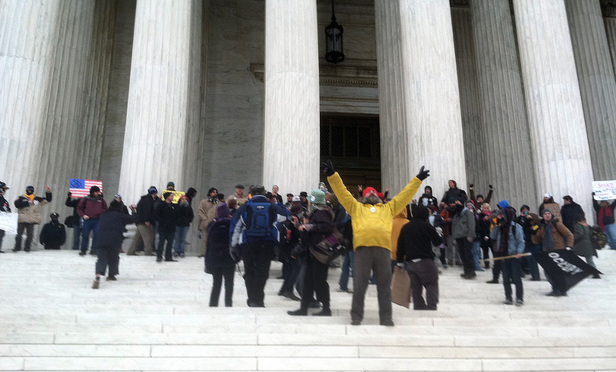Even as to a nonpublic forum, a restriction on speech must still be reasonable. A ban on ‘loud … language,’ which is entirely untethered to the need to maintain the order and decorum of the court, is unreasonable. It is not reasonable to prohibit loud language regardless of whether the loudness is necessary; regardless of whether the speech is disruptive; regardless of whether the speech is raucous; regardless of whether the volume of the speech is intended to communicate a message rather to interfere with official proceedings; regardless of the time of day; regardless of whether the loudness of the speech presents a clear and present danger of imminent violence; regardless of whether the speech is amplified; regardless of the location of the speaker within the forum; and regardless of the actual volume of the speech.
Light previously challenged a related law that bans protests on the Supreme Court grounds. Light’s client in that case, Harold Hodge, was arrested for wearing a sign with a political message while he was standing on the court plaza.
U.S. District Judge Beryl Howell in Washington declared the law unconstitutional under the First Amendment in June 2013. The government appealed. The U.S. Court of Appeals for the D.C. Circuit heard arguments in February.
In the more recent case, Light asked Cooper to look to Howell’s 2013 ruling for guidance. Both the protest and harangue laws “apply to the entire Supreme Court building and grounds and both ban an entire medium of expression,” Light wrote.
“At times, such orations may be loud due to the depth of the speaker’s convictions. Nevertheless, even loud orations and harangues are at the heart of those freedoms guaranteed by the First Amendment,” Light argued. “While the Supreme Court is sometimes the guarantor of the freedom of speech, forcing citizens to leave their essential First Amendment rights behind when they enter the Supreme Court’s premises would be ironic indeed.”
A spokesman for the U.S. attorney’s office in Washington declined to comment.
Below: Read the defense motion to dismiss in United States v. David Bronstein.




